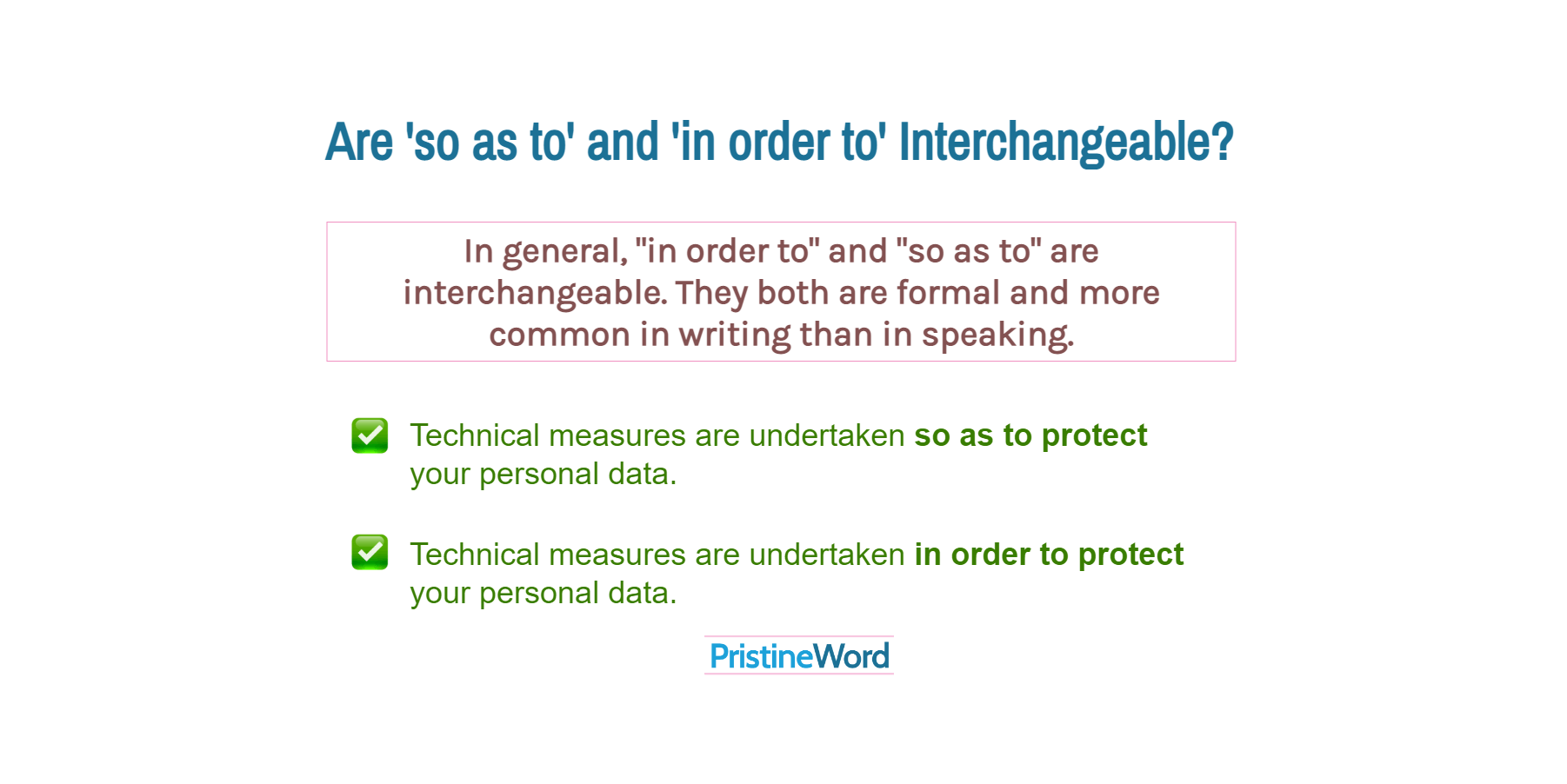In general, "in order to" and "so as to" are interchangeable. They both are formal and more common in writing than in speaking.
In general, "in order to" and "so as to" are interchangeable. Both are compound prepositions that are used to express purpose and have an infinitive as their object. They are also formal and more common in writing than in speaking.
Technical measures are undertaken so as to protect your personal data.
Technical measures are undertaken in order to protect your personal data.
What's the difference between "in order to" and "so as to"? Both are used in the same way, but "in order to" is much more common.
She worked hard in order to support her children.
Is in order to a preposition? "In order to" and "so as to" are compound prepositions. A compound preposition is a preposition that is composed of more than one word. Be aware that it's not unusual for an infinitive to be the object of a preposition. For example:
He does nothing but drink beer.
You can replace "in order to" by "to". Similarly, you can use "to" instead of "so as to". What's the difference between "to" and "so as to"? "To" by itself is more common, particularly in casual, informal, and neutral contexts.
You can teach English (in order to / to) earn some extra money.
He did it (so as to / to) help his community.
You can also start a sentence with "in order to" or "so as to".
In order to learn a second language effectively, learn basic phrases and test yourself.
So as to get a new card, you will need to prove your identity.
Note that when starting a sentence with "so as to" or "in order to", we need a comma after the introductory phrase.
You can create negative sentences with "in order to" or "so as to" by adding "not" before "to".
Follow our instructions in order not to be lost.
The doctor used the proper dose so as not to increase the risk of toxicity.
We'll add here that "in order to" and "so as to" are usually, but not always, followed by a stative verb, like be, have, appear, seem, know, learn etc. Stative verbs describe a state rather than an action.

